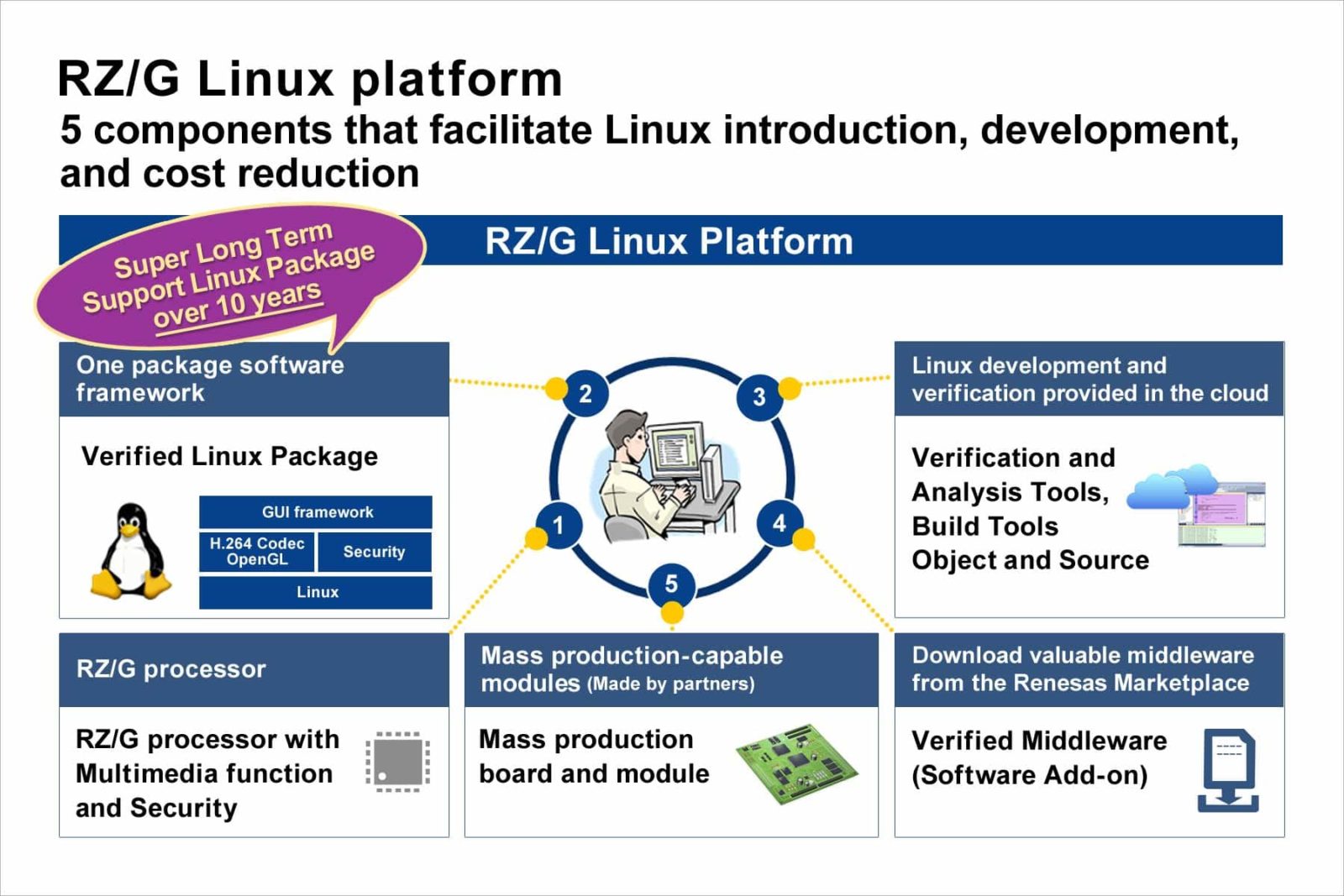Embedded developers can now easily leverage Linux for high-performance industrial equipment, and reduce maintenance costs as well as development time and set-up costs, with a new RZ/G Linux platform from Renesas. ST is claiming the first automotive processors with built-in hardware security module to protect connected cars from cyber-threats. Finally, PatientPop, a provider of practice growth technology designed for healthcare providers, has introduced automatic Google Posts with one-click appointment booking to customers.
Linux Platform With Industrial-Grade Linux OS Offers Long-Term Support

Renesas has announced the Renesas RZ/G Linux platform featuring the industrial-grade version of Linux, called the Civil Infrastructure Platform (CIP) Super Long-Term Support (SLTS) Linux kernel. The platform enables Linux-based embedded systems to be maintained for more than 10 years using a verified Linux package with cloud-maintenance and development options. According to Renesas, this is said to reduce development risks and cost for industrial and civil infrastructure applications. Read more.
Automatic Google Posts For Healthcare Practices
 PatientPop, the provider in practice growth technology designed for healthcare providers, launched automatic Google Posts with one-click appointment booking to customers. According to the firm, posting on Google is a new way for doctors to share relevant, fresh content with people who are searching for a healthcare provider, using images and calls to action to engage potential patients. This enhanced format allows prospective patients to hear directly from the doctor when looking online. Read more.
PatientPop, the provider in practice growth technology designed for healthcare providers, launched automatic Google Posts with one-click appointment booking to customers. According to the firm, posting on Google is a new way for doctors to share relevant, fresh content with people who are searching for a healthcare provider, using images and calls to action to engage potential patients. This enhanced format allows prospective patients to hear directly from the doctor when looking online. Read more.
Secure Automotive Processors To Protect Connected Cars

To protect connected cars against cyber threats, ST has announced its latest automotive processors that feature a dedicated, built-in security module. The new telematics and connectivity processors of the Telemaco3P family with this Hardware Security Module (HSM) on-chip, says ST, are ahead of the general-purpose application processors typically found in current connected-car systems, which lack dedicated hardware-based security. Read more.












